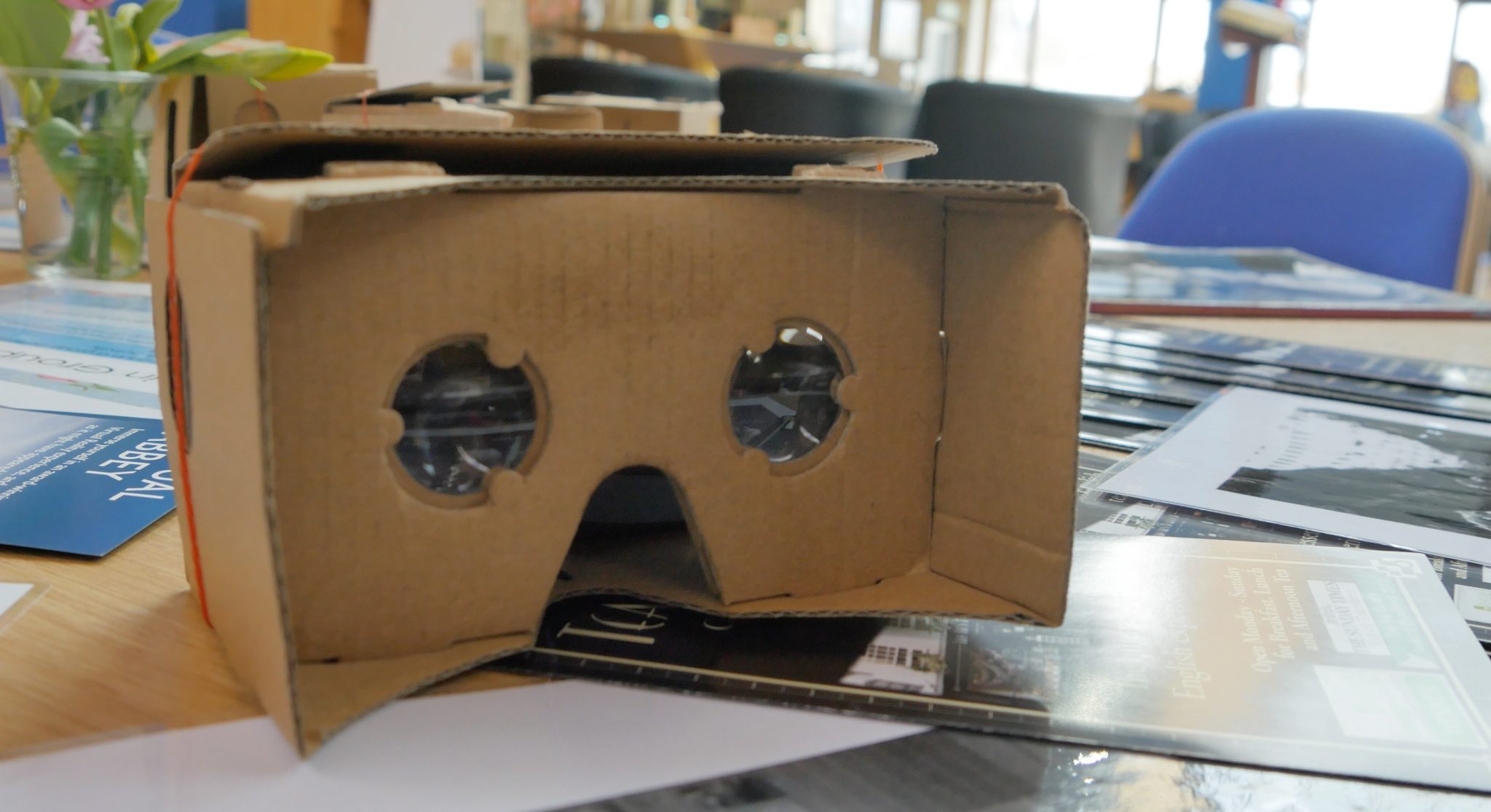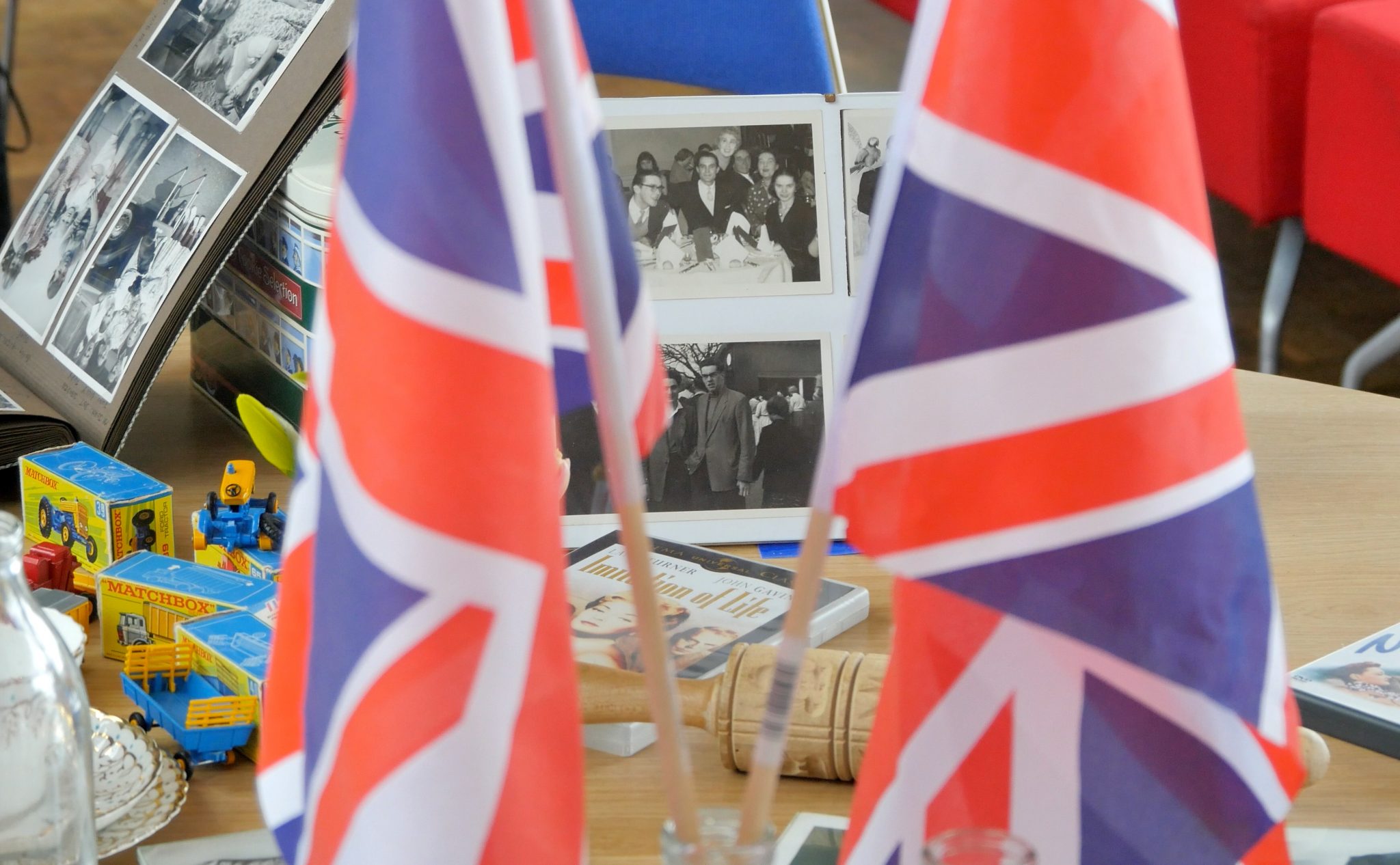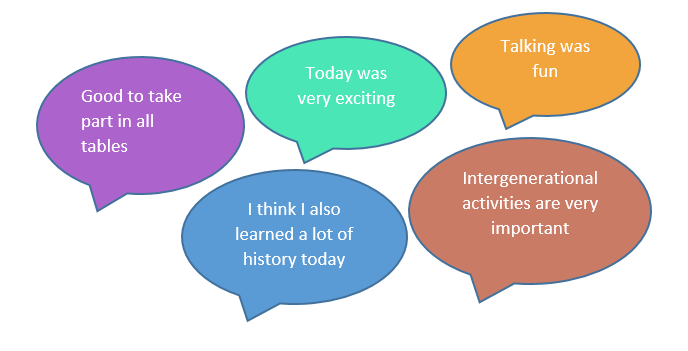Summary of the case study
Andrew Southgate, Senior Lecturer in Adult Nursing, set up a reminiscence café for student nurses from Japan on a study tour in 2018, to provide them with insights into culture, health and care in the U.K. The learning was not assessed although students presented insights into what they had learnt during the final seminar session. The students had varying ability of English Language communication and comprehension skills, so an interactive session enabled all of them to engage in the learning.
Rationale for setting up the reminiscence café
The focus of the visit was Person Centred Care and how this concept is delivered across a range of health and care settings in the U.K. Reminiscence cafés provide opportunities for people with dementia to share with each other their past experiences, memories and narratives. This is achieved via a range of media such as images, music and films. In addition, activities such as arts and crafts are used as supportive therapies to help people manage some of the psychological effects of dementia such as depression and anxiety. Reminiscence cafés are also a valuable means of support for people caring for family members with dementia, and are increasing in popularity in the UK. However a brief search related to the availability of Reminiscence cafés in Japan, found these are very rare outside of Tokyo.
Key learning outcomes of the session
- Deliver education related to how dementia care and support for carers is managed in the U.K, in an inclusive way that would engage the Japanese students
- Ensure a student-centred approach to learning, by using “work stations” which would allow the students to spend time finding out topics they were interested in
- Highlight the inter-professional nature of dementia care in the UK
Activities
The café had a 1950s theme. This provided an opportunity for staff to dress in clothes from that period, which added to the cultural learning element. It involved the following workstations:
- Virtual Reality Headsets showing a video of a 1950s Tea Party in celebration of the Coronation of Queen Elizabeth II.

- Enjoying a Cream Tea: a member of staff made scones and students were able to add jam and cream to these. As some people with dementia have swallowing difficulties, there was also a blender so students could have the opportunity to liquidise the scones.
- Making Cucumber Sandwiches: students were able to make their own cucumber sandwiches using adaptive cutlery, which demonstrated how a range of aids can be sued to support older people.
- A Reminiscence Table: this had a range of memorabilia from the 1950s. These included black and white pictures of Hollywood Movie Stars, original 1950s matchbox toys, photo albums and coins and tea cosy’s.
- China Table: The Beany in Canterbury loaned a range of tea cups, saucers, plates and tea pots that would have used when serving a traditional afternoon tea in the U.K.

- An Intergenerational Table: to demonstrate how people with dementia and children can benefit from interacting together.
- An art and craft table with a range of activities such as colouring, origami and decorating.
How it was carried out
A small staff team was involved in the venture. Nursing and Occupational Therapy students were recruited to help facilitate some of the workstations. The session was planned over a period of 3 months with some face to face meetings, which allowed ideas to be discussed and assessed for practicality. A risk assessment was carried out. A free to use video for use with VR (http//www.Thewaybackvr.com, accessed 01/11/2018) was found on the internet. It was downloaded onto i pods and cardboard headsets were purchased. The Chapel was used for the event as a large space was needed.
Evaluation
The benefits to this approach to teaching are that it gives students time and space to learn. The students were able to spend as much, or as little, time at each workstation as they wanted to. An evaluation of Japanese students’ views was undertaken via Smiley Face Emojis. This allowed all students to participate in the process regardless of their level of English Language. One of the English students commented: “It is very rewarding. I was in charge of assisting the students with scones and we ended up having a lot of fun. I thought this event was a great success.” The Faculty Lead for Internationalisation commented: “I hope you are all feeling very pleased with yourselves about the creating and running of the Reflection café for the KWU students…..I was seriously impressed and thank you so much for your time and effort. Our students were professional, confident and seemed to be culturally sensitive and were enjoying themselves.” From an academic perspective, we recognised that “nothing is impossible” and ideas are always worth investing in. The challenges, for staff, were in the preparation: The session took a lot of time to plan and deliver. Therefore, engagement and enthusiasm of the whole team was essential for the session to be a success.
Some of the in-house students who engaged participated in the 2018 Faculty of Health and Wellbeing exchange with Japan later in the year. It enabled them to develop confidence with travelling and communicating with people from a different culture. One of the students who attend was unsure about participating in the exchange. However, following the sessions, she has expressed an interest in participating in the 2019 exchange. All of the team unanimously agreed that the initial investment in developing the Reminiscence café was worthwhile. The session will be repeated in January 2019 when students from Mount Mercy University, Iowa visit and again for the Japanese students in March 2019. The content for January 2019 will be revised to include input from the Alzheimer’s Society. Another potential development is for the event to include people with dementia and their carers as co-teachers at each of the workstations.
Additional information
If you want to know more about reminiscence cafés, please contact Andrew Southgate at andrew.southgate@canterbury.ac.uk
 PRISM
PRISM Claire Haines
Claire Haines 1371
1371



